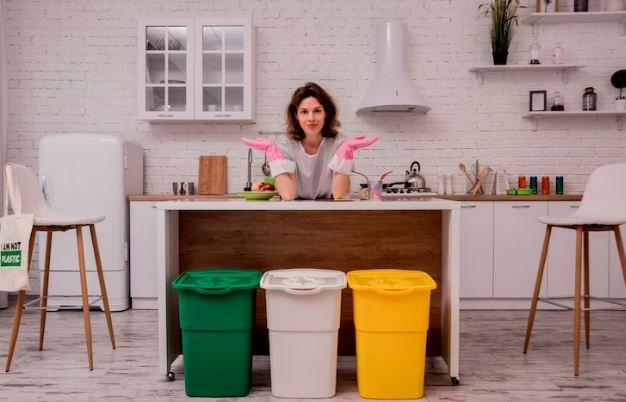Choosing the right dumpster for a house clean out is crucial to ensure a smooth and efficient cleanup process. Whether you’re tackling a major renovation, decluttering, or handling an estate cleanout, the right dumpster can make all the difference. This article will guide you through the essential tips for selecting the perfect dumpster, covering everything from understanding your needs to choosing a reliable rental service.
Assessing Your Needs
Understanding Your Clean Out Requirements
Before selecting a dumpster, it’s important to assess the scope of your clean out. Are you dealing with a large volume of waste, or just a few items? Understanding your specific requirements will help you choose the appropriate dumpster size and type.
Estimating the Volume of Waste
Estimate the amount of waste you’ll be disposing of. This can be done by measuring the volume of your waste or by using online calculators provided by many dumpster rental companies. Accurately estimating the volume helps avoid overloading or underestimating your needs.
Types of Waste: General vs. Hazardous
Identify the type of waste you’ll be disposing of. General waste, like household junk and construction debris, typically goes into standard dumpsters. Hazardous waste, such as chemicals or electronics, may require special handling and a different type of dumpster.
3. Types of Dumpsters
Roll-Off Dumpsters
Roll-off dumpsters are large, open-top containers delivered by a truck with wheels. They are ideal for large projects and can handle a wide range of waste types. They are commonly used for home cleanouts and renovation projects.
Front-Load Dumpsters
Front-load dumpsters have a smaller footprint and are often used for regular waste collection in commercial settings. They are less suitable for large cleanouts but are convenient for ongoing waste disposal needs.
Rear-Load Dumpsters
Rear-load dumpsters are similar to front-load dumpsters but have a rear opening for easy loading. They are commonly used for smaller-scale cleanouts and can be more cost-effective for residential projects.
Compactors
Compactors compress waste to reduce its volume, making them ideal for projects with high waste output. They are more commonly used in commercial settings but can be useful for large residential cleanouts as well.
Size Matters: Choosing the Right Size
Standard Dumpster Sizes
Dumpsters come in various sizes, typically ranging from 10 to 40 cubic yards. Common sizes include 10, 20, 30, and 40 yards, with each size suited to different types of projects.
How to Determine the Correct Size
To determine the right size, consider the volume of waste and the duration of your project. A 10-yard dumpster might be sufficient for small cleanouts, while a 30-yard or 40-yard dumpster may be necessary for larger projects.
Avoiding Over- and Under-Sized Dumpsters
Choosing a dumpster that is too small can lead to overloading and additional fees, while a dumpster that is too large may result in unnecessary costs. Aim to select a size that matches your needs as closely as possible.
Rental Terms and Pricing
Typical Rental Periods
Dumpster rentals typically range from 7 to 14 days. Be sure to confirm the rental period with your provider to ensure it fits your project’s timeline.
Understanding Pricing Structures
Rental pricing often includes a base fee plus additional charges based on weight or volume. Make sure you understand the pricing structure, including any extra fees for exceeding weight limits or additional days.
Additional Fees and Charges
Watch out for potential additional fees, such as those for exceeding weight limits, keeping the dumpster longer than the agreed period, or disposing of prohibited items.
Permits and Regulations
When You Need a Permit
In some areas, a permit may be required for placing a dumpster on public property or a street. Check with your local municipality to determine if a permit is necessary.
Local Regulations and Restrictions
Each area has its own regulations regarding dumpster placement and waste disposal. Familiarize yourself with local rules to avoid fines or delays.
Environmental Considerations
Ensure that your waste disposal practices comply with environmental regulations. Proper disposal of hazardous materials and recycling practices can help minimize your impact on the environment.
Choosing a Reliable Dumpster Rental Service
Researching Local Providers
Look for reputable dumpster rental services in your area. Research local providers and compare their services, prices, and availability.
Checking Reviews and References
Check online reviews and ask for references to gauge the reliability and quality of service provided by the dumpster rental company.
Customer Service and Support
Choose a provider known for excellent customer service. Responsive support can help address any issues or concerns that may arise during your rental period.
Preparing for Dumpster Delivery
Site Preparation Tips
Prepare the site where the dumpster will be placed. Ensure it is level and clear of obstacles to facilitate easy delivery and pickup.
Accessibility Considerations
Make sure the delivery truck has adequate access to the site. Narrow driveways or low overhangs can impede delivery and pickup.
Safety Precautions
Follow safety precautions to prevent accidents during the delivery and use of the dumpster. Ensure that the area is secure and free from hazards.
Filling the Dumpster
Proper Waste Disposal Practices
Fill the dumpster evenly to avoid overloading one side. Distribute waste to maximize space and avoid potential safety hazards.
Weight Limits and Overloading
Adhere to weight limits to prevent additional fees and ensure safe transport. Overloading can cause damage to the dumpster and may result in extra charges.
What Not to Put in the Dumpster
Avoid placing prohibited items in the dumpster, such as hazardous materials, chemicals, or electronics. Check with your rental provider for a list of restricted items. Scheduling Pickup and Final Steps
How to Schedule Pickup
Contact your rental provider to schedule a pickup when the dumpster is full or when your rental period ends. Ensure you provide sufficient notice to avoid delays.
Final Cleanup and Site Restoration
Once the dumpster is picked up, clean the area and restore it to its original condition. Remove any remaining debris and check for any damage.
Dealing with Issues or Complaints
If you encounter any issues with the dumpster rental service, such as delays or additional charges, address them promptly with the provider. Document any problems and communicate clearly.
Expert Insights
Quotes from Waste Management Experts
“Choosing the right dumpster is crucial for a smooth cleanout process. Accurate waste estimation and selecting the appropriate size can prevent common pitfalls and additional costs.” – Waste Management Expert
Common Mistakes to Avoid
Common mistakes include overloading the dumpster, ignoring local regulations, and failing to understand the pricing structure. Avoid these pitfalls by planning carefully and following best practices.
Future Outlook
Trends in Waste Management
Advancements in waste management technology are improving efficiency and environmental impact. Innovations such as smart dumpsters and enhanced recycling programs are becoming more prevalent.
Innovations in Dumpster Services
Dumpster services are evolving with new features like online booking, real-time tracking, and eco-friendly options. Stay informed about these innovations to make the most of your rental experience.
Conclusion
Choosing the right dumpster for a house clean out involves careful planning and consideration of your specific needs. By following these tips and understanding the factors involved, you can ensure a smooth and efficient cleanup process. For the best results, select a reliable rental service, adhere to local regulations, and make sure your dumpster size matches your project requirements.
















